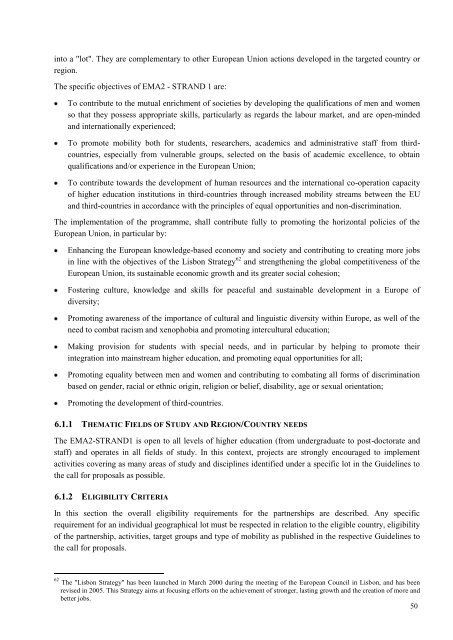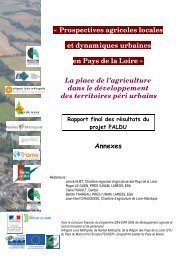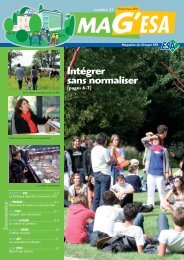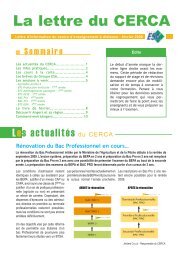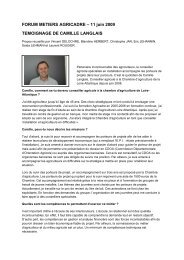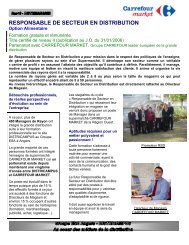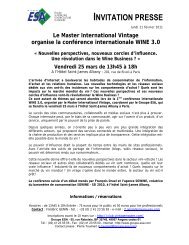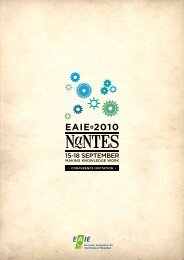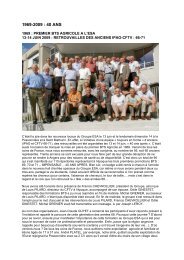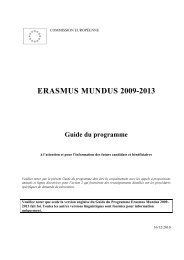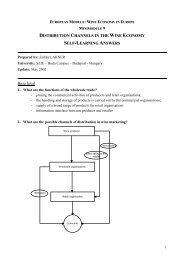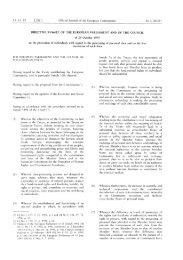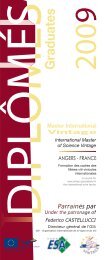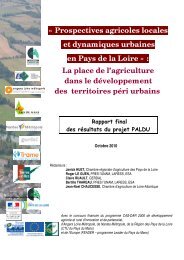ERASMUS Mundus Program Guide - EACEA - Europa
ERASMUS Mundus Program Guide - EACEA - Europa
ERASMUS Mundus Program Guide - EACEA - Europa
You also want an ePaper? Increase the reach of your titles
YUMPU automatically turns print PDFs into web optimized ePapers that Google loves.
into a "lot". They are complementary to other European Union actions developed in the targeted country or<br />
region.<br />
The specific objectives of EMA2 - STRAND 1 are:<br />
To contribute to the mutual enrichment of societies by developing the qualifications of men and women<br />
so that they possess appropriate skills, particularly as regards the labour market, and are open-minded<br />
and internationally experienced;<br />
To promote mobility both for students, researchers, academics and administrative staff from thirdcountries,<br />
especially from vulnerable groups, selected on the basis of academic excellence, to obtain<br />
qualifications and/or experience in the European Union;<br />
To contribute towards the development of human resources and the international co-operation capacity<br />
of higher education institutions in third-countries through increased mobility streams between the EU<br />
and third-countries in accordance with the principles of equal opportunities and non-discrimination.<br />
The implementation of the programme, shall contribute fully to promoting the horizontal policies of the<br />
European Union, in particular by:<br />
Enhancing the European knowledge-based economy and society and contributing to creating more jobs<br />
in line with the objectives of the Lisbon Strategy 62 and strengthening the global competitiveness of the<br />
European Union, its sustainable economic growth and its greater social cohesion;<br />
Fostering culture, knowledge and skills for peaceful and sustainable development in a Europe of<br />
diversity;<br />
Promoting awareness of the importance of cultural and linguistic diversity within Europe, as well of the<br />
need to combat racism and xenophobia and promoting intercultural education;<br />
Making provision for students with special needs, and in particular by helping to promote their<br />
integration into mainstream higher education, and promoting equal opportunities for all;<br />
Promoting equality between men and women and contributing to combating all forms of discrimination<br />
based on gender, racial or ethnic origin, religion or belief, disability, age or sexual orientation;<br />
Promoting the development of third-countries.<br />
6.1.1 THEMATIC FIELDS OF STUDY AND REGION/COUNTRY NEEDS<br />
The EMA2-STRAND1 is open to all levels of higher education (from undergraduate to post-doctorate and<br />
staff) and operates in all fields of study. In this context, projects are strongly encouraged to implement<br />
activities covering as many areas of study and disciplines identified under a specific lot in the <strong>Guide</strong>lines to<br />
the call for proposals as possible.<br />
6.1.2 ELIGIBILITY CRITERIA<br />
In this section the overall eligibility requirements for the partnerships are described. Any specific<br />
requirement for an individual geographical lot must be respected in relation to the eligible country, eligibility<br />
of the partnership, activities, target groups and type of mobility as published in the respective <strong>Guide</strong>lines to<br />
the call for proposals.<br />
62 The "Lisbon Strategy" has been launched in March 2000 during the meeting of the European Council in Lisbon, and has been<br />
revised in 2005. This Strategy aims at focusing efforts on the achievement of stronger, lasting growth and the creation of more and<br />
better jobs.<br />
50


